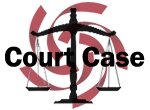
The servicemember had complained that the lower court had committed an error by issuing the order and that the order was violative of the SCRA.
It is important to note that the servicemember was not alleging that his participation in the court action was impossible because of his duties, nor was a stay requested. In fact, he had participated in the lower court proceedings by filing pleadings. The servicemember had contended that he was not allowed by the court to be present at the hearing or to speak and that this violated his SCRA rights. The Alaska Supreme Court held that the lower court followed an acceptable practice of decisions upon the pleadings and documentation and that no one had raised the issue of whether the income reports, upon which the court relied, were accurate. The estoppel effect of not raising such issues was also taken into account.
This case serves as another reminder that the SCRA is not an impenetrable shield against all judgments. In fact, the thrust of the SCRA is on default judgments, usually entered by a Clerk of the Court when a summons or complaint is not answered within the statutory requirements. In those situations, the Clerk may not enter a default judgment unless there is an indication whether the person is on active military duty. If the person is on active duty, or if there is any doubt, then the matter must be referred to a judge who reviews whether adequate efforts were undertaken to conduct a military verification, whether an attorney must be appointed (for which there is no federal funding at this time), and whether a bond may be required from the Plaintiff. Review the SCRA for the applicable provisions.
